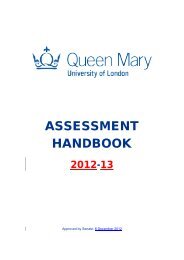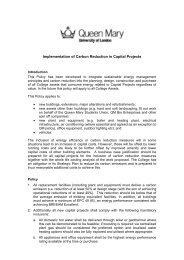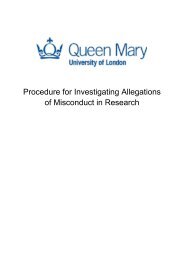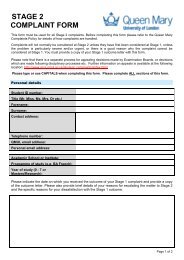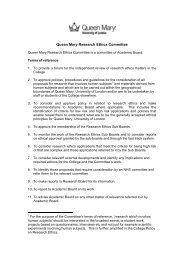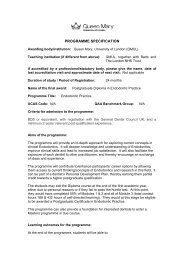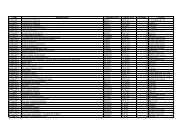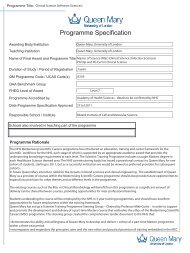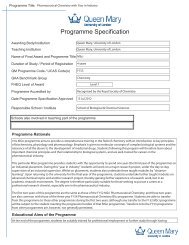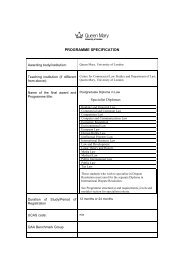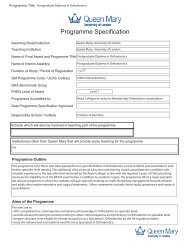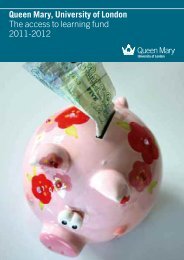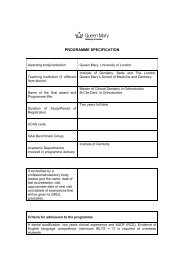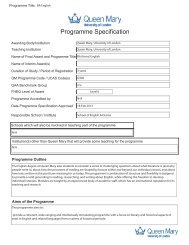Academic Regulations 2010/11 - Academic Registry and Council ...
Academic Regulations 2010/11 - Academic Registry and Council ...
Academic Regulations 2010/11 - Academic Registry and Council ...
You also want an ePaper? Increase the reach of your titles
YUMPU automatically turns print PDFs into web optimized ePapers that Google loves.
<strong>Academic</strong> <strong>Regulations</strong> <strong>2010</strong>/<strong>11</strong>Part 1– Framework <strong>and</strong> Governanceiii. To agree the results of students in individual assessments <strong>and</strong> modules.iv. To consider claims of extenuating circumstances <strong>and</strong> where valid to approve anyproposed action to be taken.v. To make recommendations for results to be set aside where there are acceptedextenuating circumstances.vi. To approve the progression of students.vii. To approve the progression of students to alternative programmes if applicable.viii. To make recommendations for exclusion of students due to failure.ix. To make recommendations for award <strong>and</strong> classification.x. To agree actions in the event of failure of a module (including qualified failure) by astudent, including resit provisions which may include appropriate alternativeassessment arrangements.xi. To make recommendations for students to retake a module(s), where applicable.xii. To make recommendations for the suspension of regulations for individual or groupsof students, where applicable.xiii. To make recommendations for the award title for individual students, whereapplicable (pre 2008 cohorts only).xiv. To exercise discretion where appropriate <strong>and</strong> within the permitted scope of anyQMUL policy or regulation, in order to agree results or progression <strong>and</strong> makerecommendations for awards <strong>and</strong> classifications.xv. To review statistics on academic performance <strong>and</strong> to comment on the performance ofcohorts in particular assessments.xvi. Any other duties delegated to the SEB by the DEB or Senate.1.27. An SEB may establish sub-boards where this has the support of the relevant externalexaminers <strong>and</strong> is approved by Senate, or its delegated authority. Some SEBsoperate a preliminary meeting or internal Board to consider points of detail prior to themeeting of the SEB. One or more sub-committees should also be established toscrutinise examination papers before external examiner approval.1.28. The membership of the Subject Examination Board is as follows:i. A Chair, appointed to the role by Senate, or its delegated authorityii. A Deputy Chair, appointed to the role by Senate, or its delegated authority.iii. The programme co-ordinator(s)/director(s)iv. The internal examiners for the modules being consideredv. The external examiners/ intercollegiate examinersvi. The Vice Principal for Teaching <strong>and</strong> Learning who may attend any ExaminationBoard as a member.1.29. The following may be in attendance:i. The Secretary to the SEB.ii. A representative from another SEB when students on joint programmes are beingconsidered.Page 13 of <strong>11</strong>0



